Detailed introduction of Budapest University of Technology and Economics:
Introduction
Budapest University of Technology and Economics is a famous European university of technology and a very historically significant and representative public comprehensive university in Central Europe. Its history can be traced back to 1782. It is the first institution in Europe to train university engineers and one of the oldest polytechnics in the world.
Overview
Student size: There are more than 21,000 students from home and more than 50 countries and regions, including more than 800 overseas students. The total number of students in 2025 is 18,440, with international students accounting for 14%.
Faculty: There are more than 1,100 professional professors and lecturers, and more than 400 professional researchers.
Course settings: There are undergraduate, graduate, and MBA education systems, covering many professional fields such as architecture, chemical engineering, civil engineering, economics and social sciences, electronics and information engineering, and all-English courses are provided.
History and establishment time
The Budapest University of Technology and Economics was founded in 1782. The first campus was built in 1892. It is located on the banks of the Danube. In 1987, the campus was recognized as a World Heritage Site by UNESCO.
School strength
Teaching resources and facilities: The campus covers an area of 4 square kilometers and has a large library with 450,000 books and 120,000 professional journals. There are also large computer networks, laboratories, student sports centers, medical centers, dormitories and other complete teaching and living facilities.
Scientific research cooperation: Siemens, Bosch of Germany, Audi of Hungary, etc. have established R&D laboratories in the school for long-term cooperation. In addition, the school maintains partnerships with many internationally renowned universities.
Academic achievements: 70% of Hungary's engineering and technical personnel graduated from the school, and the school has trained many Nobel Prize winners and many outstanding talents who have made outstanding contributions to human history and social progress.
Nature of the institution
Public university.
Educational philosophy
Aims to train professionals in disciplines such as technology, informatics, natural sciences, economics, business and management, pay attention to the combination of theory and practice, emphasize the cultivation of students' innovative ability and ability to solve practical problems, and strive to cultivate talents with high professional quality and innovative spirit for the society.
Key laboratories and disciplines
Key disciplines: Architecture, chemical engineering, civil engineering, electronic and information engineering, mechanical engineering, natural sciences, economics and social sciences, and transportation engineering have a high reputation in Hungary and internationally, and many disciplines are at the forefront of the world university discipline rankings.
Key laboratories: The R&D laboratories established by companies such as Siemens, Bosch, and Audi in the school are its important scientific research platforms. In addition, the school also has many on-campus scientific research laboratories, but no clear public information has been found on the specific key laboratories.
Department
It has 8 colleges and 110 Multiple departments, as follows:
School of Architecture: Architecture, Urban Planning, Architectural Design, Interior Design, Construction Management.
School of Chemical Engineering: Chemical Engineering, Inorganic Chemistry, Organic Chemistry, Food Technology, Biochemistry, Industrial Chemistry.
School of Civil Engineering: Civil Engineering, Environmental Engineering, Municipal Engineering, Water Conservancy Engineering, Information Science.
School of Economics and Social Sciences: Business Administration, Marketing, Tourism and Leisure Management, International Business, Public Relations, Economic Resources and Environment, Economics, Finance, Accounting, Business Law, Humanities and Law, Social Sciences, Vocational Education, New Technology Research, Sports and Training, Health and Social Care.
School of Electronics and Information Engineering: Electronics and Electrical Engineering, Computer Science, Information Technology, E-commerce, Multimedia, Software Engineering, Media Design.
School of Mechanical Engineering: Mechanical Engineering, Manufacturing Engineering, Vehicle Engineering, Precision Instruments, Manufacturing Processes and Equipment, Agricultural Machinery, Mechanical Design.
School of Natural Sciences: Algebra, Analysis, Comparative Studies, Geometry, Functions, Atomic Technology, Atomic Physics, Physics, Experimental Physics, Theoretical Physics.
School of Transportation Engineering: Transportation Engineering, Urban Transportation, Railway Transportation, Water Transportation, Air Transportation, Transportation Equipment Manufacturing and Maintenance, Transportation Technology, Transportation Economics.
Ranking
In the 2025 Times Higher Education World University Rankings, it ranks 1201-1500.
In the 2023 QS World University Rankings, the school ranks 801-1000.
Expenses
Preparatory Program: Engineering, General Majors, 0.5-1 year, tuition fee 6400 euros/year.
Undergraduate Program: Chemical Engineering, Civil Engineering, Computer Science Engineering, etc., 3-4 years, tuition fee 6400 euros/year.
Master's Program: Architecture, Regional and Environmental Economics Research, etc., 1-2 years, tuition fee 7000-7600 euros/year.
Undergraduate and Master's Program: Architecture, 5 years, tuition fee 6400 euros/year.
Doctoral Program: Construction Engineering, Business and Management, etc., 4 years, tuition fee 9000 euros/year Years.
Campus
Location and environment: The main campus is located in Budapest, the capital of Hungary, on the banks of the Danube River, with beautiful surroundings and convenient transportation. The campus itself has a unique architectural style. In 1987, part of the campus was recognized as a World Heritage Site. There is also a large park on campus with a pleasant climate.
Campus facilities: In addition to complete teaching facilities, the school also has a student union, an overseas student welfare office, a housing office, etc., to provide students with a variety of services and support. The campus cinema is open every day to enrich students' extracurricular life.
-
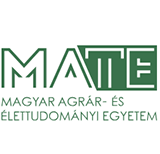
Hungarian University of Agriculture and Life Sciences
-
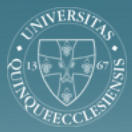
University of Pécs
-
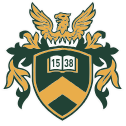
University of Debrecen
-

Budapest University of Technology and Economics
-
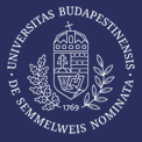
Semmelweis University
-

University of Pannonia
-
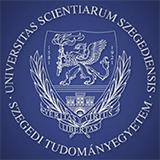
University of Szeged
-
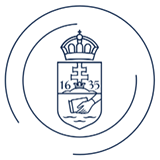
Eötvös Loránd University
-
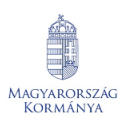
University of Miskolc
-

University of Sopron
-

Mesoamerican University
-

Istmo University
-

Mariano Galvez University of Guatemala
-

Regional University of Guatemala
-

Galileo University
-

Francisco Marroquín University
-

Rafael Landívar University
-

University of the Valley of Guatemala
-

University of San Carlos of Guatemala
-

Technological Institute of Tlaxcala Plateau
-

Golfo University
-

Technological University of South Sonora
-

Technological University of Huejotzingo
-

Tizimín Institute of Technology
-

Chilpancingo Institute of Technology
